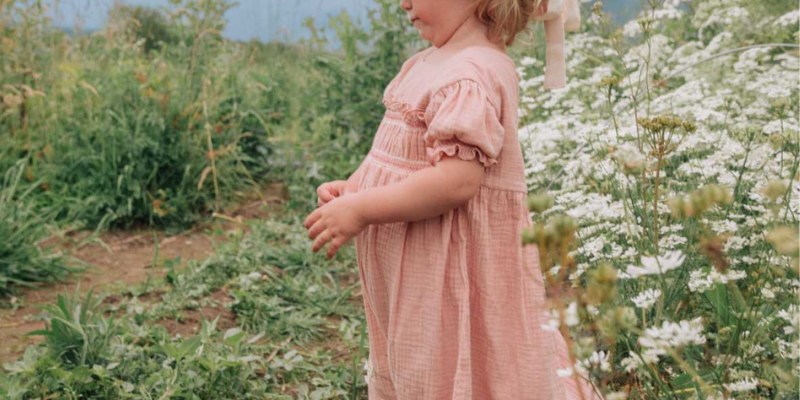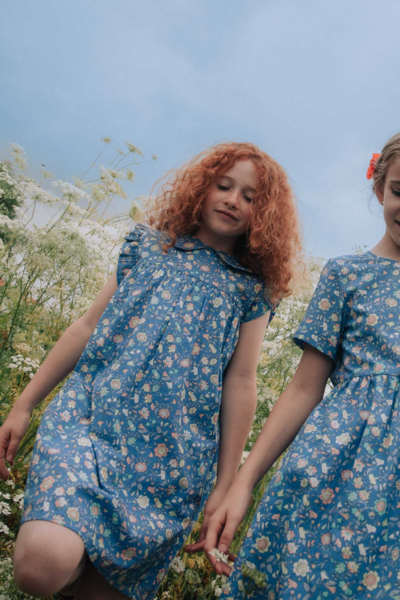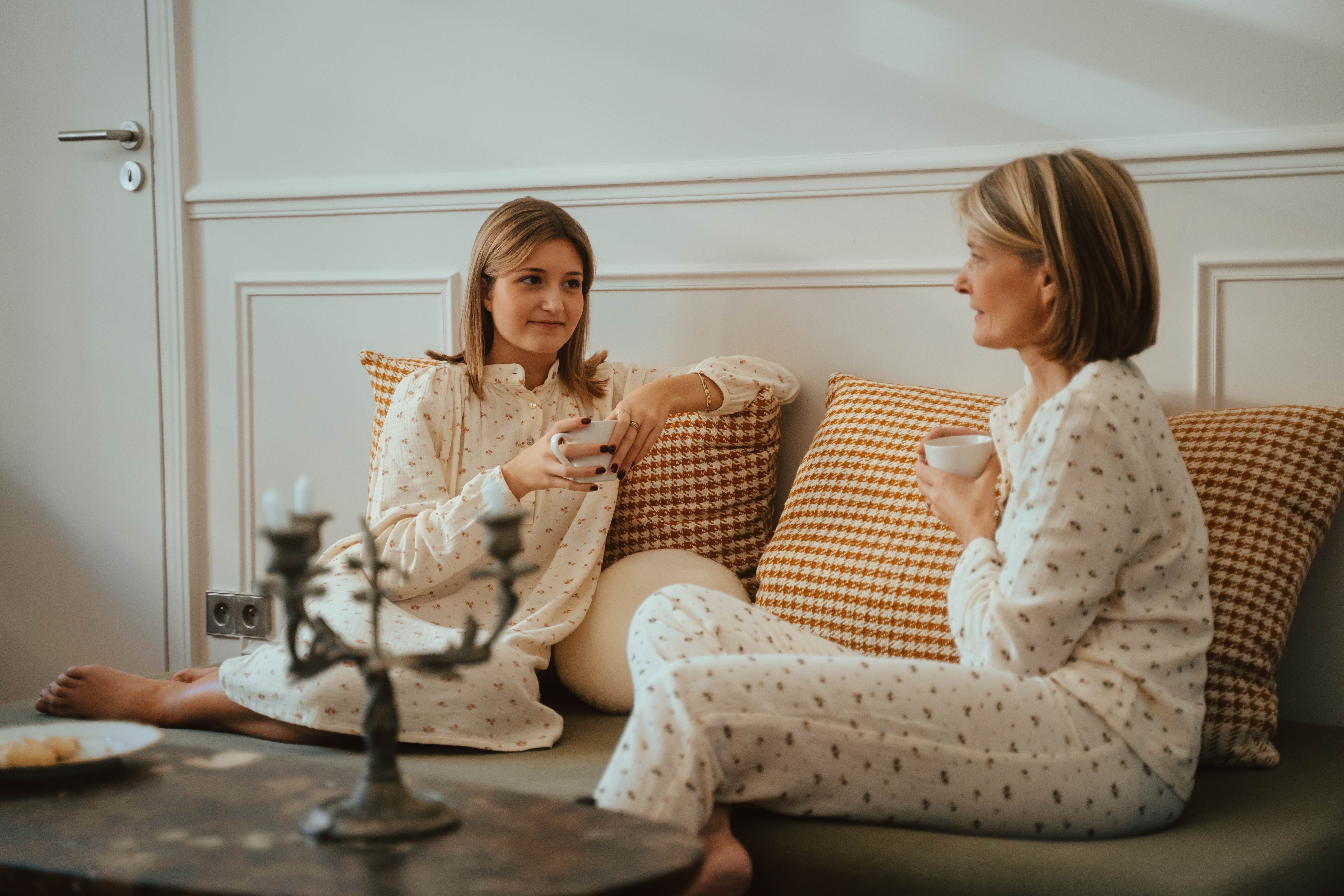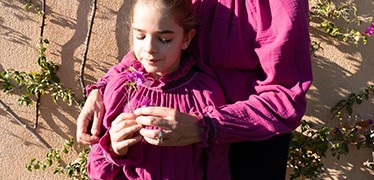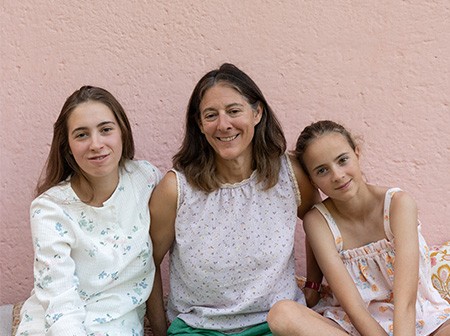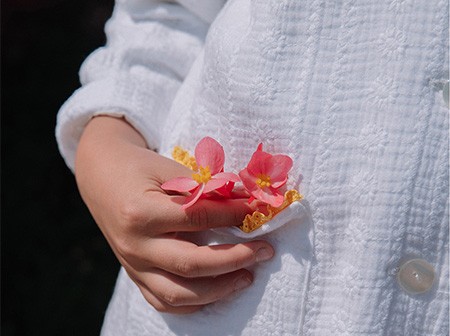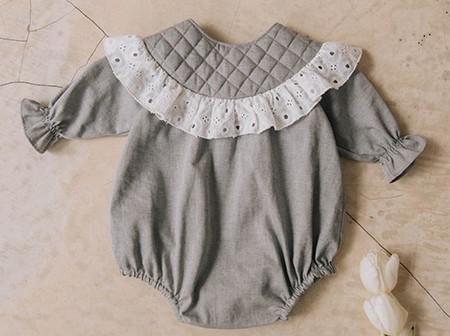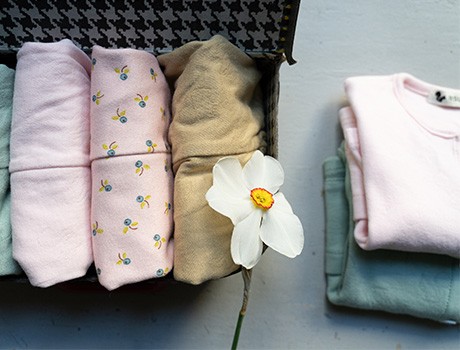Organic fashion
What is it?
What is an organic garment ?
After all, what does that mean? We are not eating salads! It's true we could say ecological, organic, responsible ... Responsible eco fashion is in its beginnings and is still a vast project where anything goes. At Risu Risu, an organic garment means:
An organic cotton flower
The cotton flower grows without pesticides, chemical fertilizers and is a GMO free knitting organic fabric.
knitting organic fabric
The yarn and the fabric are made according to very strict standards and most often we choose suppliers that have been awarded the label (this is the best guarantee for our skin and the environment)
organic dyeing
The dyeing and other possible treatments of the fabric (anti-shrinkage for example) have once again respected the regulations of the . This changes EVERYTHING because it is what comes into contact with our skin.
The dangers of conventional clothing for health
The legal framework
The main legal obligations are:
- The REACH standard, a European regulation that came into effect in 2007 in certain restrictions on hazardous substances to companies that manufacture or market textile articles (in particular)
- A European 2001 regulation imposes the inclusion of the fabric composition on the label.
hese obligations are very insufficient and in addition, many non-compliant items enter Europe, escaping customs controls.
What's really in our clothes
Very many highly toxic chemical substances whose adverse effects on health are known and recognized which are found in clothing
(source: report of ANSES, the French Agency for Health Safety, Food, Environment and Work conditions following the analysis of a clothing sample published in October 2018)
We find on a non-negligible proportion of our clothes (up to ¼ according to the substances analyzed) carcinogenic substances, endocrine disruptors and minimum allergenic substances and neurotoxic ...
- among the carcinogenic substances: the deplored presence of phthalates, azoic dyes (including CI disperse yellow), heavy metals (chromium VI), and nickel
- among the endocrine disruptors: the famous nonylphenol ethoxylates (NPE)
Some tips
The washing of all new clothes is essential but insufficient because washing can on the contrary release more dyes Pregnant women need to be especially vigilant because all these substances pass through the blood and contaminate the fetus
A baby's skin
A baby's skin is fragile, as you've heard a thousand times. The skin of an infant lacks maturity up to 6 months as it does not yet serve a role of protective barrier. Even then, the skin is an impermeable organ, which means it lets pass through the body what is applied to contact.
An organic garment will be soft (it is already that) but especially guarantees harmful substances from coming into contact with the epidermis and therefor inside the body, more or less on a short or long term basis.
conseils pour un lavage biologique
Faire sa lessive présente plusieurs avantages : en plus d’être écologique et économique, fabriquer sa lessive soi-même est très facile. En quelques minutes, vous pouvez préparer de quoi laver votre linge pour plusieurs mois ! Pour celles et ceux qui ne savent pas par où commencer pour devenir autonome, faire de la lessive maison constitue un premier pas facile à réaliser !
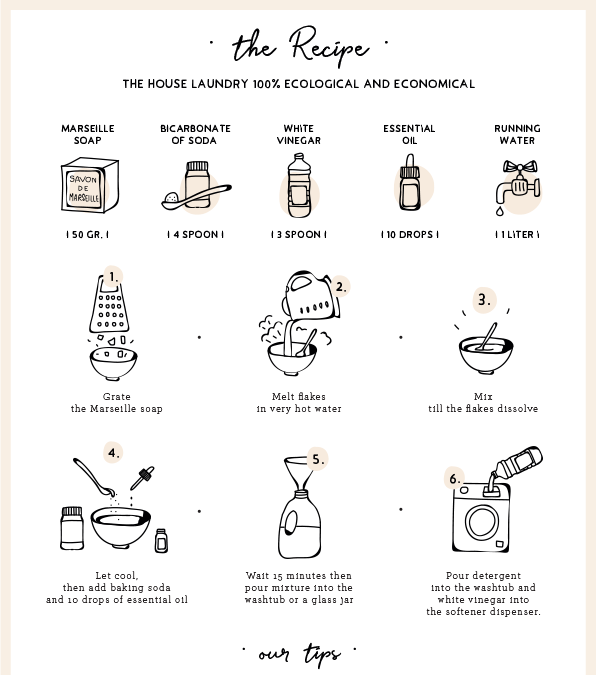
Essential oil is used to perfume your linen, you can use the essential oil of eucalyptus, lavender, lemon ... It is of course optional!
The dryer is not recommended because it consumes energy and damages cotton fibers
To be used only if after a few hours the laundry still needs to dry
The label
To understand exactly what we are talking about, RISU • RISU chooses the vast majority of its fabrics under the label, a reference for organic textiles.

The label has very strict requirements for growing cotton (without pesticides) to the final product. The use of harmful chemicals is thus prohibited along with the manufacturing process (weaving of the fabric, dyeing ...) and controlled by audits. Wastewater treatment is mandatory and the working conditions of employees meet social criteria. However, all of our products are not certified. Our Spanish workshop does not yet have this certification, which is very costly for small structures. But most of our fabrics are certified, which gives consumers the maximum guarantee, especially for dyeing fabrics.
Textiles and the planet
Let it be known:
80 billion garments are produced each year The textile industry is the second polluting industry in the world after oil and is responsible for 20% of water pollution in the world
Cotton crops account for 10% of global pesticide sales and 25% of herbicides, of which chemical fibers (polyester, polyamide ...) take more than 200 years to degrade and give off toxic gases
So, keep admiring pretty flowers and buy responsible!
